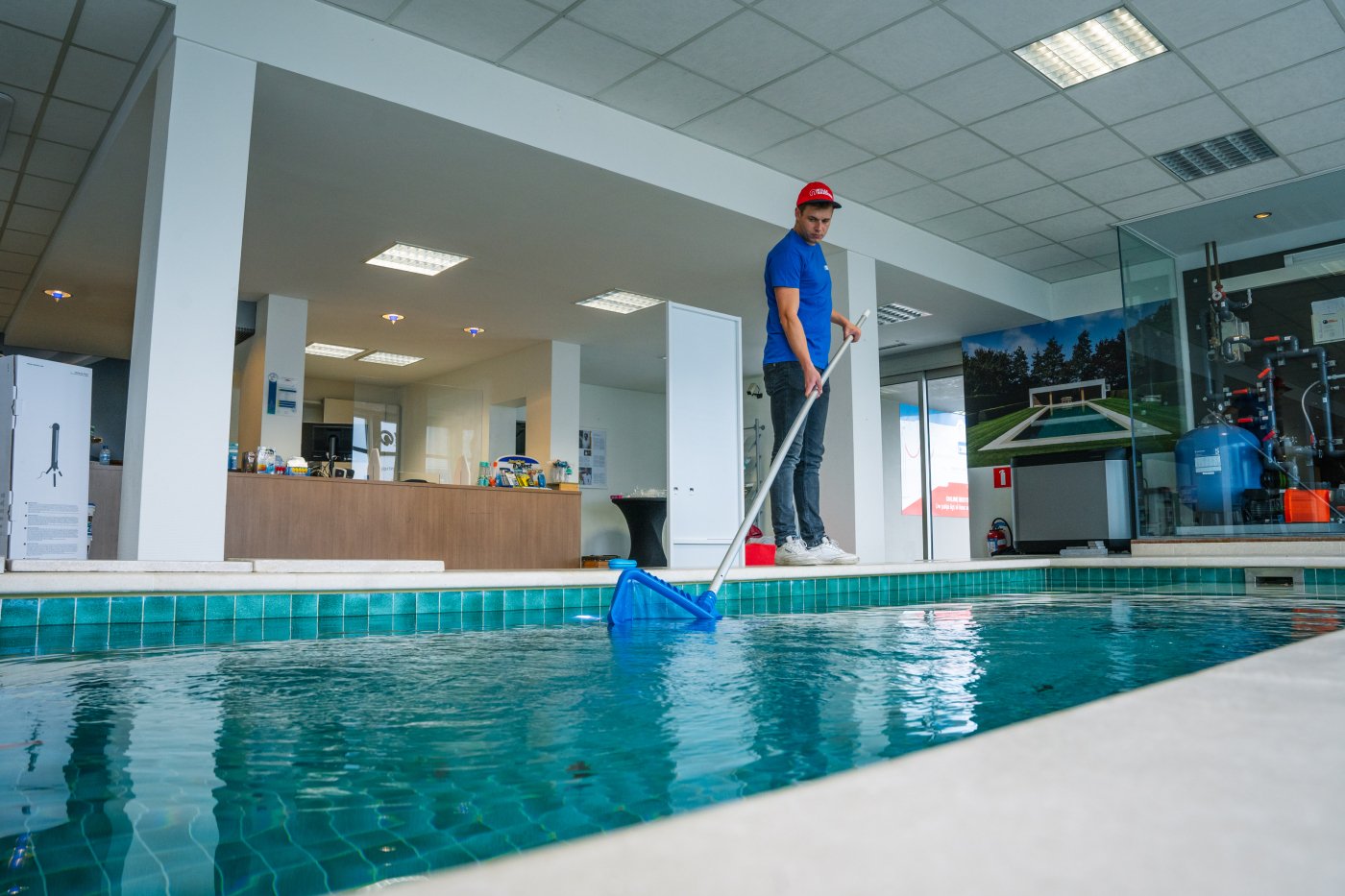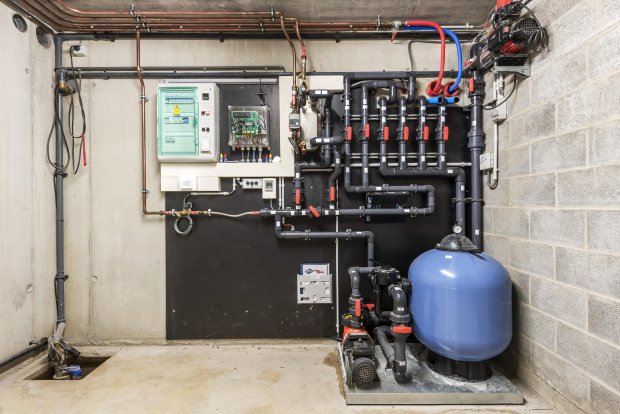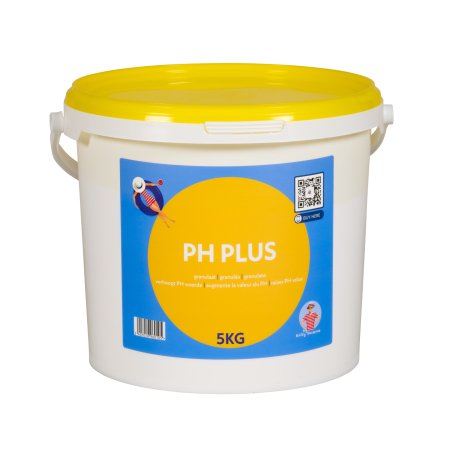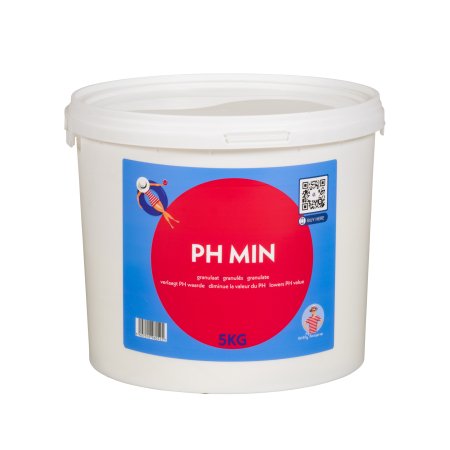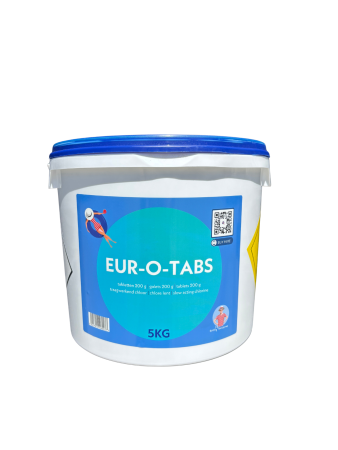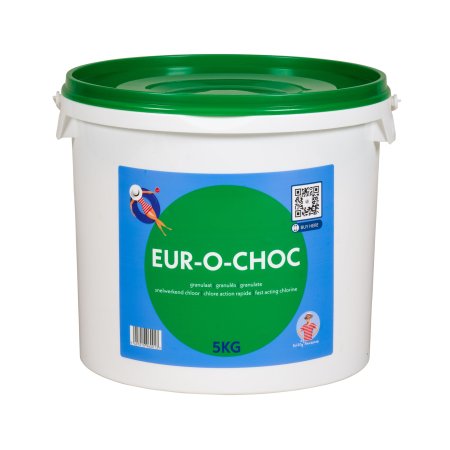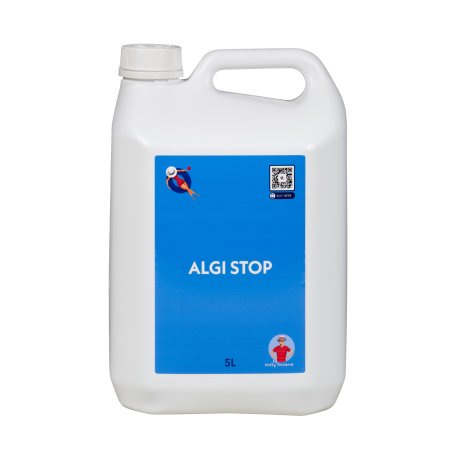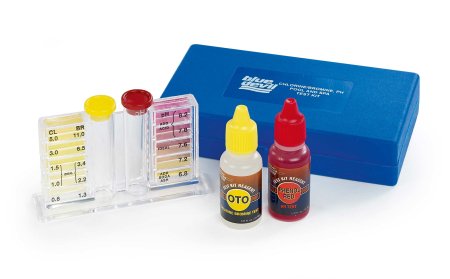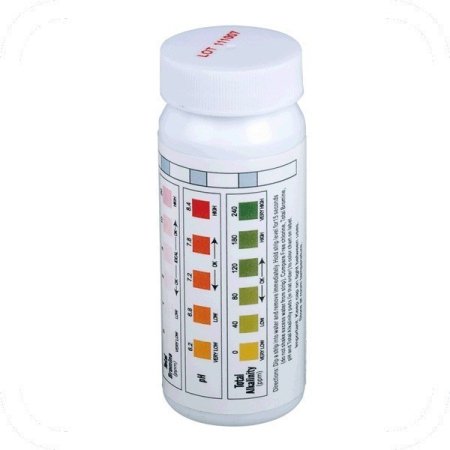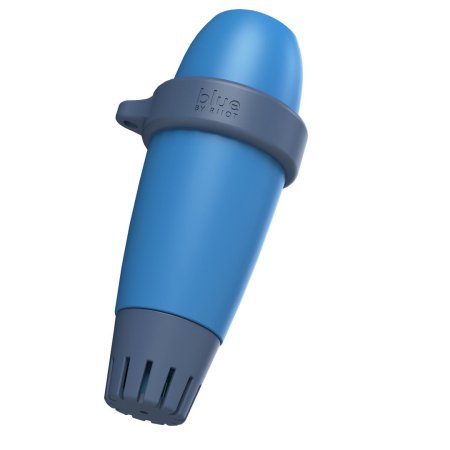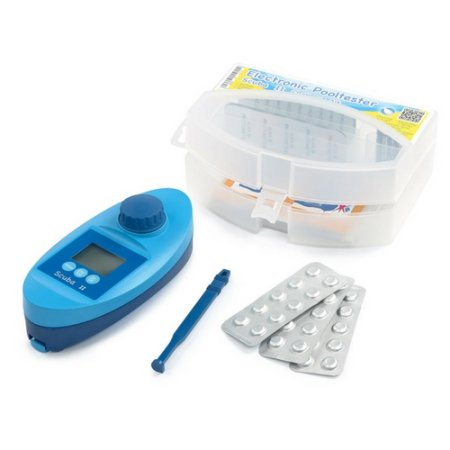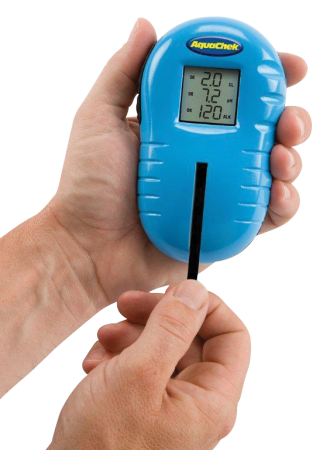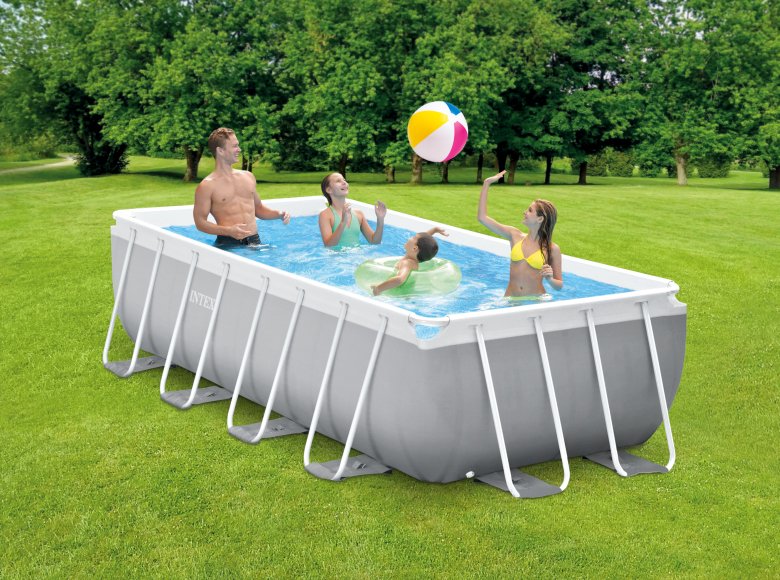pH level
Just about everything on and around the pool affects the pH value. That's why you have to check it regularly. When the pH is too high, the water is ‘alkaline’. And when it's too low, the water becomes ‘acidic’. Swimming pool water needs to have a neutral pH value of between 7.4 and 7.6.
Alkalinity
Testing the alkalinity and keeping it under control are equally important if you want to maintain your swimming pool's pH value. Remember us saying how quickly pH values get out of balance? Well, the alkalinity in the pool helps counteract those fluctuations.
Hardness
Another important characteristic of pool water is its hardness. When there's too much lime in the water, limescale starts building up. Getting rid of it can be a tough job, but you can quite easily prevent the problem by testing and maintaining the water before the hardness gets out of hand.
Algae as such are not harmful to us humans, but the bacteria that the algae attract can quickly make your pool a place to avoid. So, when it comes to algae, prevention is better than cure. As long as the chlorine level and pH are OK, you shouldn't really have any algae problems.


